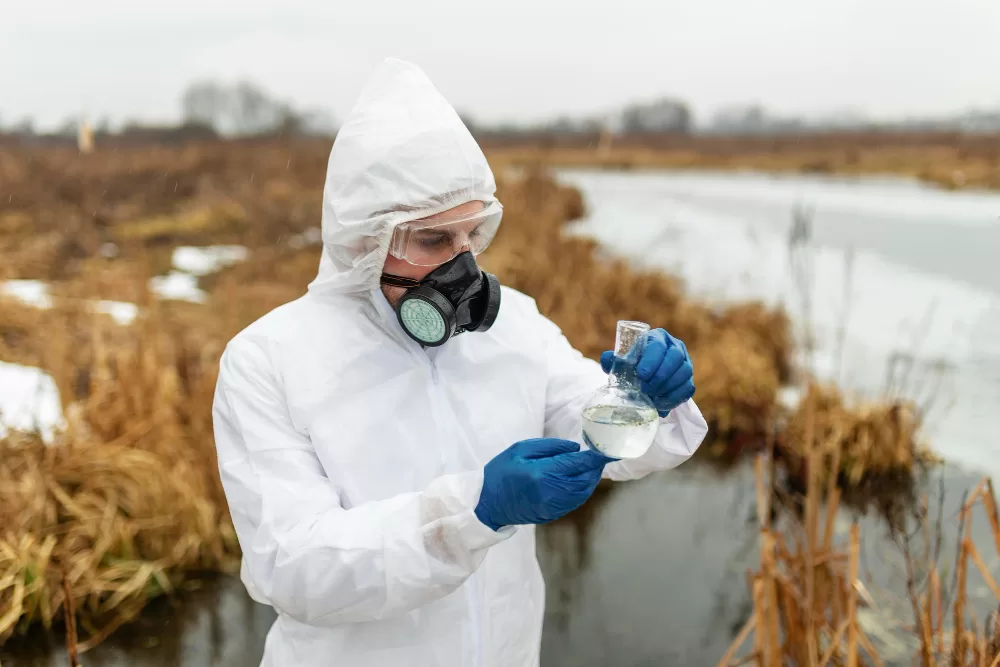The Camp Lejeune Justice Act became law in August 2022. This act allows service members and their families to file a claim against the federal government and seek compensation for their injuries if they believe they have been harmed by the drinking water consumed at or near Camp Lejeune, North Carolina, from 1953 through 1987.
When did scientists first discover that the drinking water at Camp Lejeune was making people sick?
In response to regulations from the Environmental Protection Agency, the U.S. government tested the waters at Camp Lejeune in 1980. At that time, two water treatment plants supplied the base and base housing. The testing found that the water was contaminated with trichloroethylene (TCE) and perchloroethylene (PCE), which are industrial solvents.
An off-base dry cleaner used those chemicals, which contaminated the groundwater and the wells in the Camp Lejeune area as early as 1953. These chemicals were found to be harmful to people. Although the main plant was closed in 1987, these chemicals had lasting effects on the groundwater and wells in or near the base.

Those who lived on or near the base were ingesting harmful chemicals that may have been causing them harm, but they did not know it then. Finally, scientists began studying the long-term effects of these chemicals, but it took these scientists a long time to figure out that the chemicals were the cause of these people getting sick.
Many service members, and their families, have been ingesting this water for years, and it may have taken a long time for the symptoms to surface. Scientists did begin studying the chemicals found in the water and comparing those chemicals to the issues people faced. Scientists spent many years trying to determine if the chemicals caused the diseases.
How have researchers determined that the toxic water caused illnesses?
Following the discovery of the toxic water supply and seeing that many service members and their families were contracting illnesses, including cancer and Parkinson’s disease, Congress ordered that a study be launched to see if the exposure to the toxins caused the illness. The results were astounding.
The research performed took many years, as it takes time for people to start exhibiting symptoms after ingesting the toxins. However, in 2009, the researchers found benzene in the water, in addition to TCE and PCE, which was a chemical previously omitted from the report. These studies have shown that they knew about this chemical in 1991, but it wasn’t disclosed. In addition, researchers have found that the benzene level has gotten worse over time.

Benzene causes cells in the body not to function correctly, according to researchers. Benzene can damage the immune system, increasing the risk of infections. It can damage bone marrow and can cause a decrease in red blood cells, which can lead to anemia. It can also cause excessive bleeding. Excessive levels of benzene are very harmful to the body.
Benzene is a carcinogen, and the levels of this chemical in the drinking water at Camp Lejeune were dangerously high. Researchers have confirmed that these chemicals have quite possibly made many people sick. Some of the illnesses doctors diagnosed service members and their families with are:
- Adult leukemia
- Kidney cancer
- Bladder cancer
- Liver cancer
- Aplastic anemia and other myelodysplastic syndromes
- Non-Hodgkin’s lymphoma
- Multiple myeloma
- Parkinson’s disease
Many people got sick due to exposure to toxic water at the base, but they did not know where to turn for help. Now service members and their families stationed at or near Camp Lejeune between 1953 and 1987 know that there is financial help for their situation. They can file a Camp Lejeune water contamination lawsuit.
Many victims are filing lawsuits
Many service members and their families are filing lawsuits for the damages they incurred due to toxic water at the base under the Camp Lejeune Justice Act (CLJA). The government typically has a type of immunity from suits filed by individuals. But the CLJA provides individuals with a vehicle by which they can file a claim for damages against the federal government. The CLJA allows people to sue the government and claim damages caused by ingesting the toxic water at Camp Lejeune.

Eligible veterans can claim damages. To be eligible, the individual must have been at Camp Lejeune for at least 30 days between Aug. 1, 1953, through Dec. 31, 1987. In addition, the service member could not have received a dishonorable discharge, and the individual must have suffered from one of the above-listed diseases. If eligible, you may be able to file a Camp Lejeune water contamination lawsuit.
If you feel that the water has harmed you at Camp Lejeune, Action Matters is here to help. You can find out what options you have and how you may be compensated for your suffering from this toxic water.